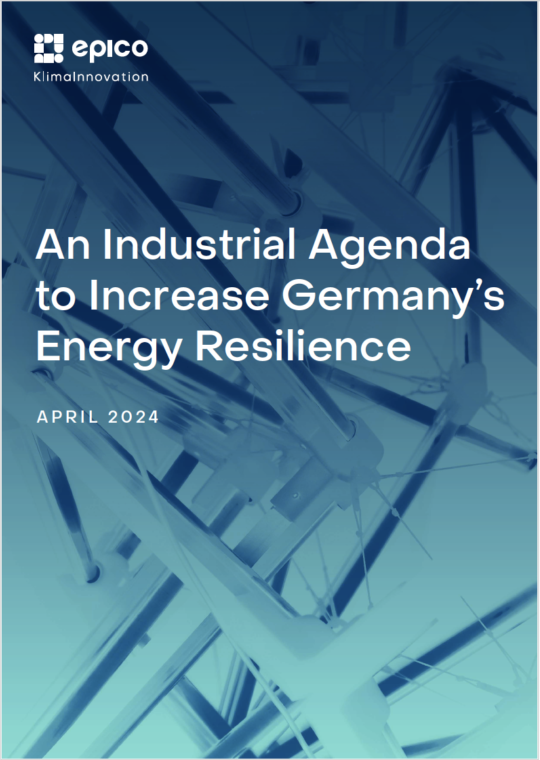Today, EPICO KlimaInnovation published the policy paper, “An Industrial Agenda to Increase Germany’s energy resilience”. The paper proposes 10 principles to guide energy policymaking and puts forward 5 policy recommendations to accelerate Germany’s transition towards climate neutrality, while ensuring competitiveness and societal well-being.
Germany and the European Union are navigating a complex landscape marked by Russia’s aggression in Ukraine, energy and supply crises, and geopolitical shifts. Amidst these challenges, the imperative for energy resilience has never been greater.
This Policy Paper presents a comprehensive strategy to enhance energy resilience while driving towards climate neutrality, focusing on industry challenges, the value of resilience, guiding principles, and a new industrial policy framework.
The single market is Europe’s key asset to drive down costs for the transformation, but it needs to be strengthened to enable the development of future technologies. The policy paper proposes five crucial recommendations to reinforce the single market:
- Future-proofing electricity market design,
- Creating regulatory sandboxes,
- Boosting effective financial and tax incentives,
- Creating more guarantees for innovation and cleantech,
- Using regressive grants to scale new technologies.
These reforms need to be embedded in a new integrated approach favouring European programmes that promote and implement innovation within ecosystems. By implementing these recommendations, Germany and the EU can ensure competitiveness while driving towards climate neutrality.
“An industrial agenda to increase Germany’s energy resilience” is a policy paper resulting from EPICO’s Policy Accelerator workshops respectively focusing on direct electrification and indirect electrification, which were held at Siemens Energy in Berlin between 9 and 12 January 2024.


